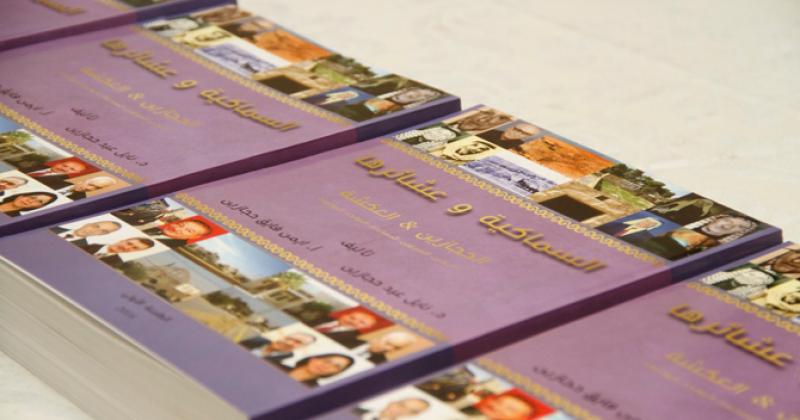“From Smakiyeh to Wahadneh and vice versa”… this is the title of my article that was published in Al Rai daily on March 3, 2005. I was at the time talking about the hardships faced by university students with regards to transportation. The question that arises is why do I love these two townships? The reason I dearly love them is because the latter, located in the northern part of the homeland, is my township where I spent the first decade, while the former, located in the southern part of the homeland, is the place where I spent ten years as priest of the Latin Patriarchate.
A few weeks ago, I held a book with one hand by retired Colonel Mahmoud Sharaideh titled, “Al Wahadneh Between the Present and the Past…its Tribes and History” and I held in the other hand a book by the natives of Smakiyeh, Na'el Hijazeen and Ayman Hijazeen titled, “Smakiyeh and its Tribes”. This book, which deals with both the tribes of Hijazeen and Akasheh, was launched in a special reception attended by Dr. Abdul Salam Majali, native of the southern part of Jordan, and Minister of Culture Dr. Adel Twaisi. I just recall the efforts exerted by our forefathers and their determination to pursue the march of life with optimism.
The book abounds with sublime national unity which characterizes the children of Smakiyeh. I do not only refer to those who became ministers or members of parliament or even obtained the PhD degree… (with my respect to all people mentioned in the book) for I view genuine nationality and citizenship, as being one of the features that characterizes all the residents of this dear township, which is engraved in the hearts and minds…from home to school and then to the two churches which are two jewels revealed on the forehead of the homeland. Among the most difficult days experienced in Smakiyeh is the Sunday that coincided with the passing away of King Hussein, may his soul rest in peace, where we placed his photo in the church at a time when the bells were making sad tones. I avoided looking at people in the eyes as real and noble tears were streaming down their cheeks.
“The Latin School” in Smakiyeh which the book addresses, was established in 1912. It is like any other public church institution, where it not confined to followers of a certain religion; it is rather open to all people. As we nowadays address means to fight extremism and address the calls to exclude others, let us go back to the roots and the beginnings. We say that: What joins us together is much greater that what separates us in the name of God. In the township of Smakiyeh, as is the case in greater Jordan, religion brings us together and does not separate us since it serves cordiality and harmony. In Smakiyeh, one can learn respect for the other religion and its followers in a natural way and in daily dialogues which exclude unfounded arguments. In Smakiyeh, there are no fatwas (a ruling on a point of Islamic law given by a recognized authority) that authorizes shaking hands with other brethren of the homeland as the life in southern Jordan includes waiting for rain and harvesting the crops.
When I was in Smakiyeh, I had the feeling, as poet Mahound Darwish says, that “I was like in a balcony that overlooks whatever I want to see”. This could be done by reverting to the Internet and the satellite dishes so as to get acquainted with the novel events in the world. In 2003, the site abouna.org site was launched in Smakiyeh. It has the slogan, “The Human Person, the Heart of the Media.”
A number of priests and nuns are traced to this township. They are well-known for their nobility and adherence to the Christian Arab faith on the one hand and for their respect to all citizens on the other. A few days ago, Fr. Faysal Hijazeen passed away. He was eulogized by a Jordanian Arab Christian tribe and the Latin Patriarchate in both Jerusalem and Amman. He spent his life serving the people in Palestine with its churches and schools. In his services, he represented the unity of the parishes of Jerusalem as they extend through their services to the two banks of the immortal River of Jordan, namely Jordan and Palestine.
